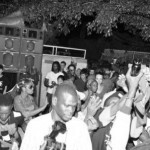
Underground Currents: Louis Althusser’s “On Marxist Thought”
When Perry Anderson wrote in 1976 that “Western Marxism” could be considered a “product of defeat,” he was referring to the catastrophes and betrayals that framed the period from 1924 to 1968. In retrospect, this seems like foreshadowing. The intervening decades have seen not simply a defeat for the workers’ movement but its total dissolution – the collapse of the institutions that once made it an undeniable social force, and the rollback of the reforms it had won from the state. In our situation it has become difficult to say what “Marxism” really is, what distinguishes it as a theory, and why it matters. But this is by no means a new question. And of all the definitions and redefinitions of Marxism, Louis Althusser’s were perhaps the most controversial. In 1982, just before François Mitterrand’s turn to austerity, Althusser began to draft a “theoretical balance sheet.” He wrote “Definitive” on the manuscript, and never published it.
 Viewpoint Magazine
Viewpoint Magazine







